
Koli women of the Diva Gaon fish market continue to face trying days after hundreds of fish surfaced dead in the community’s holding ponds mid-October, 2021. Areas that yielded entire batches of grey mullet, Asian sea bass and crabs have become uninhabitable due to worsening conditions of Thane creek, said fisherfolk.
Members of Airoli’s Koli community earned Rs. 15,000 to Rs. 20,000 monthly by selling big and small fish and crustaceans harvested from their ponds in Diva Gaothan. However, years of accumulating silt has become a stumbling block for their livelihood. According to Diva Koliwada Machhimaar Seva Sanstha Chairman Chandan Madhvi the mass fish deaths around October 15 were the direct result of the lack of desiltation in the ponds.
“The growing silt deposit is creating mudflats and rotting the black mangrove trees. These die and fall into the pond where the fish eat the toxic items. We have been asking for the desiltation of these ponds for a long time,” Madhvi told SabrangIndia.
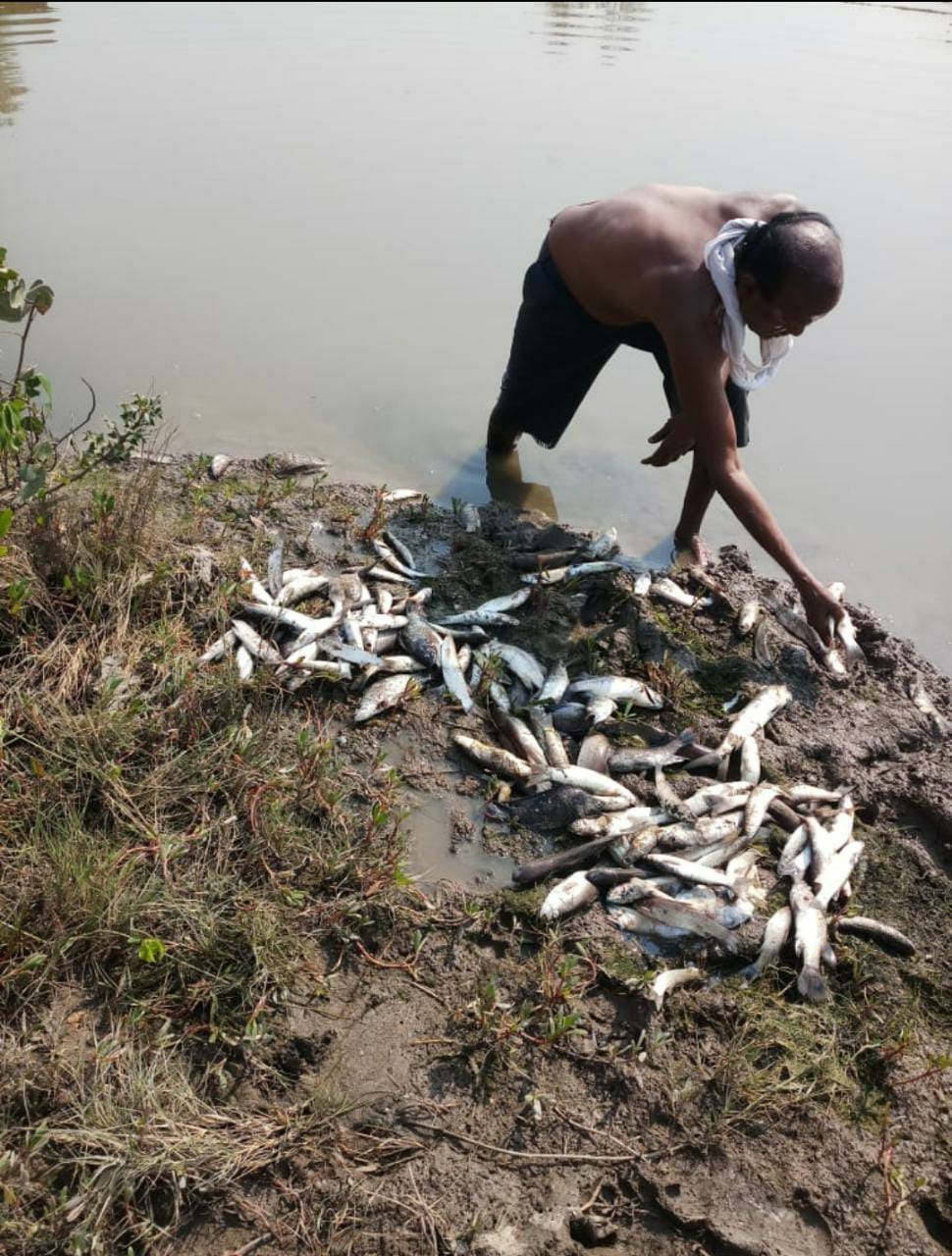
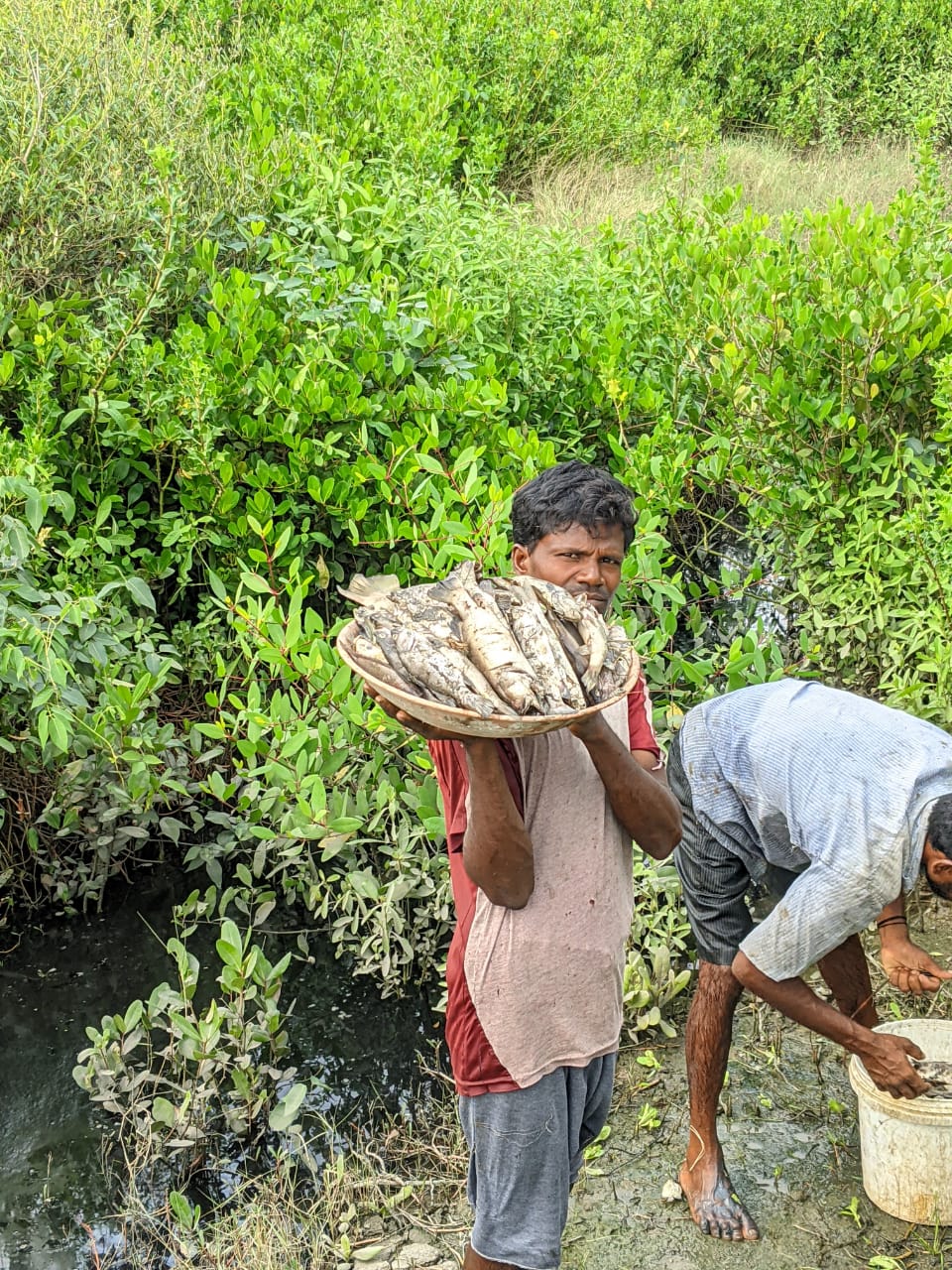
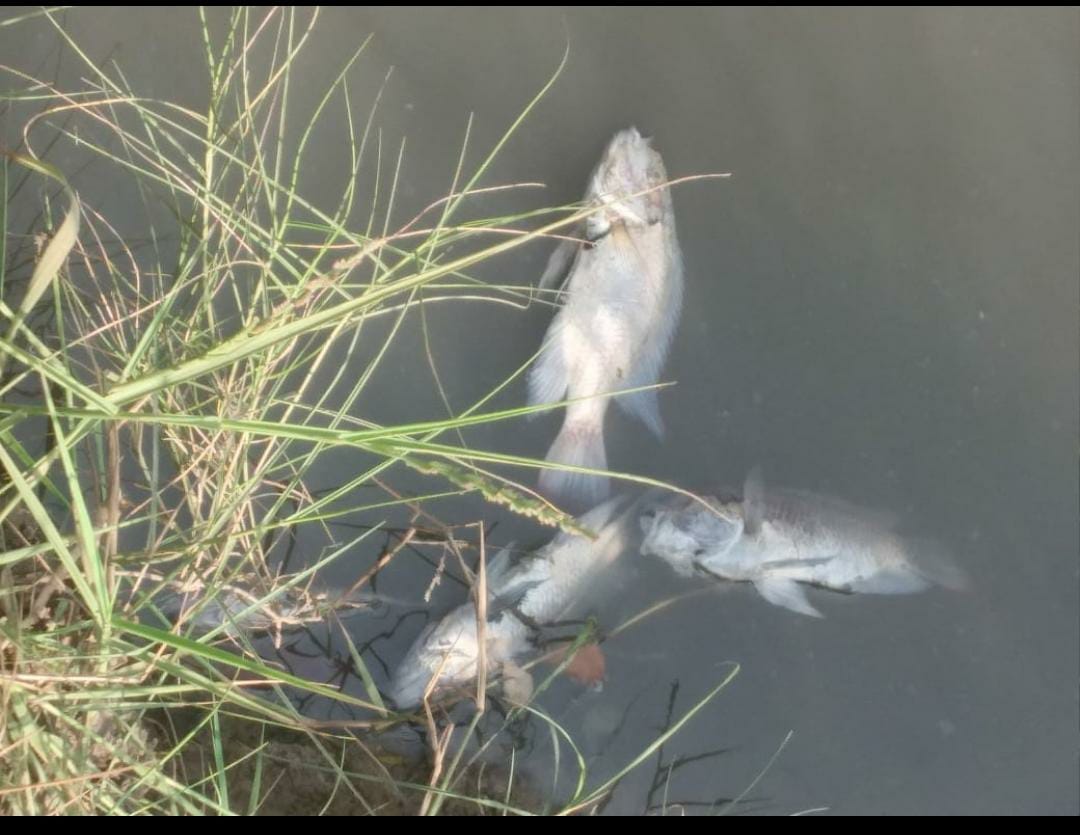
The delay in cleaning these plants has cost many fisherfolk. Fisherman Gulab Patil said he lost as many as 200 fish. Authorities, who visited his pond near the Coastal and Marine Biodiversity Centre, promised to clean the area. But even after two weeks, Patil says he is still waiting.
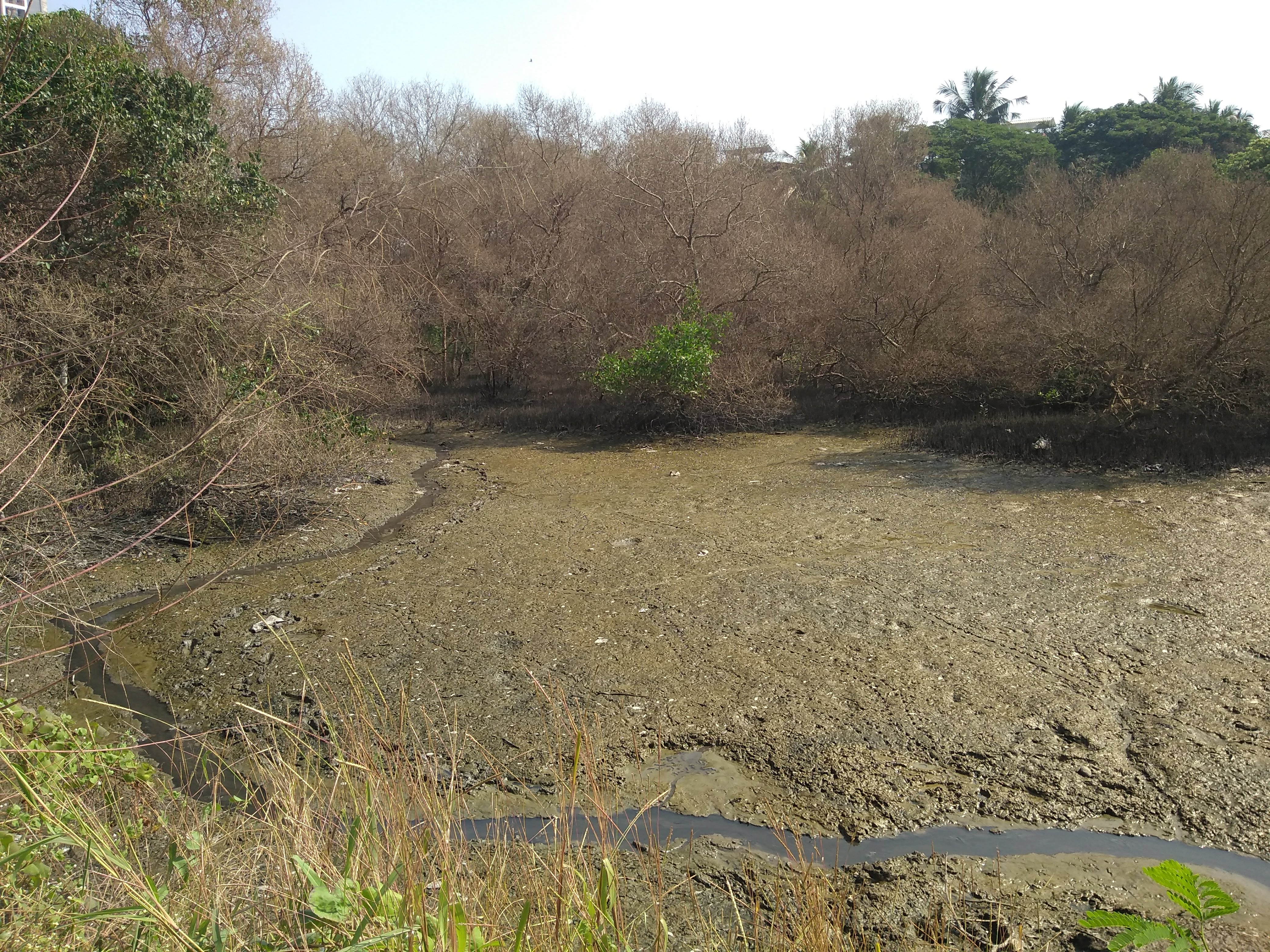
Still, desiltation work is likely to take around five to six months. During this time, fisherfolk will have no choice but to row all the way to Vashi bridge to catch fish from now on. Madhvi said this will create conflict among the fishers in the region.
Earlier, small crabs from the pond sold for around Rs. 500 while big crabs went for Rs. 1,000 to Rs. 2,000. Add this to the sale of the aforementioned big fish, and fisherfolk managed to break even after paying for fishing equipment, fuel and stall rent.
Fisherwoman Jaymala Madhvi recalled that she would earn up to Rs. 20,000 before October by only selling crabs. Recently she struggled to earn Rs. 5,000. Madhvi estimated that at least 400 crabs must have died during the incident.
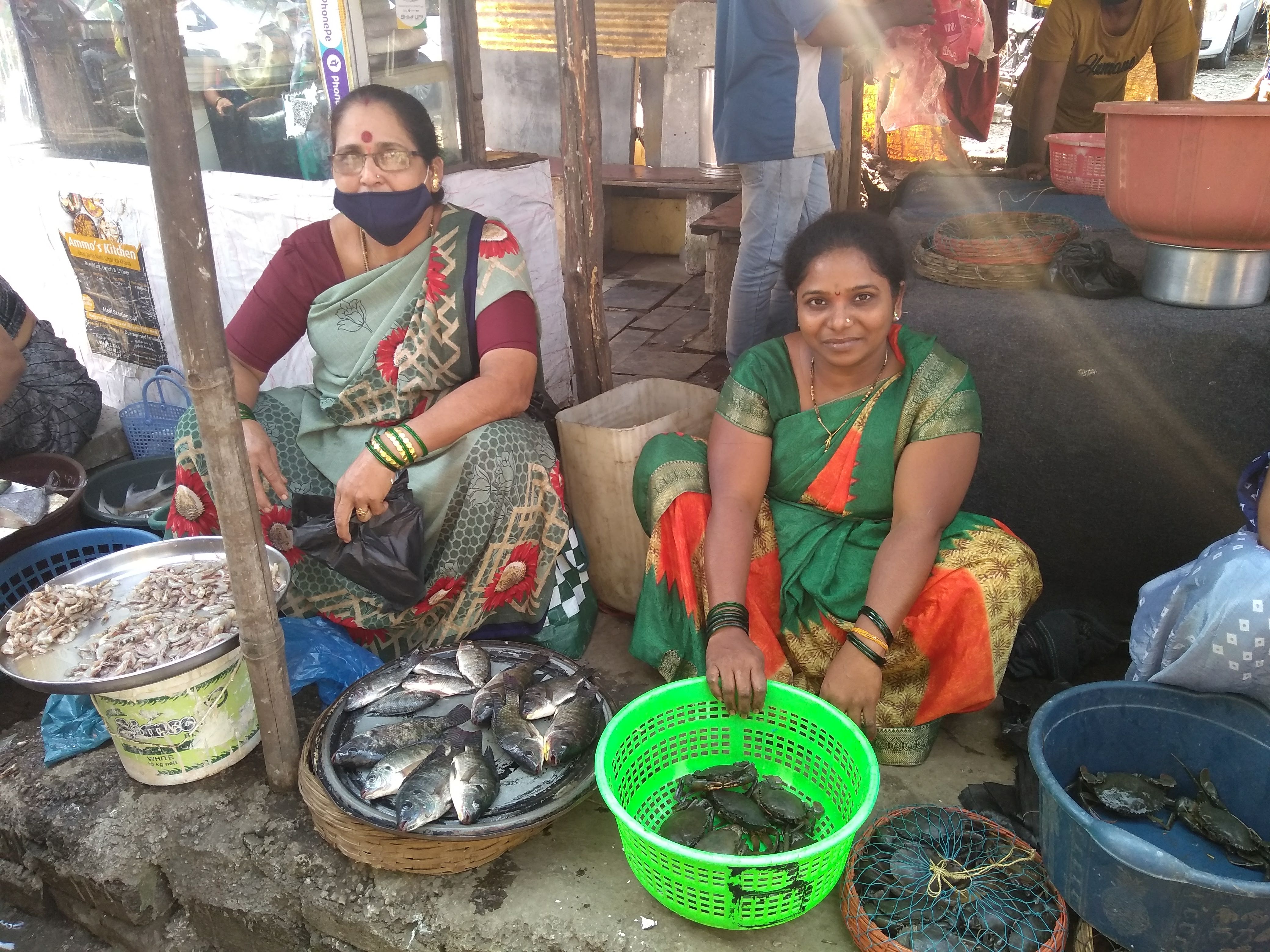
When asked whether Chairman Madhvi has any hope of authorities compensating fishers for their loss he said, “Koli folk have not received any disaster compensation so far. Why don’t we? We are suffering due to polluted water and dying mangroves. At least help us remove the dead trees.”
In response, Airoli-Diva Forest Range Officer (FRO) N. G. Pokhale told SabrangIndia that desilting the area has become complicated since the mangrove area was recognised as forest land under Section 20 of the Indian Forest Act. “We are trying to form a committee to check the water quality in the ponds and address the concerns of the community. We also had a meeting around September with community members, but it is unclear exactly when desilting will begin,” said Pokhale.
As the region lies within an eco-sensitive zone (ESZ), the move also requires the permission of the Bombay High Court after the committee assesses its impact on the mangroves and mudflat ecosystem.
Industrial waste a bigger issue than desilting
Tracing the issue further back, Vanashakti NGO Director D. Stalin squarely blamed the steady flow of pollutants in Thane creek for the fish deaths.
“Increased sewage in the creek has lowered oxygen levels in the water and killed fish. From Thane to Dombivali, there are companies releasing their waste in the water. So long as these pollutants continue, desiltation will be required,” Stalin told SabrangIndia.
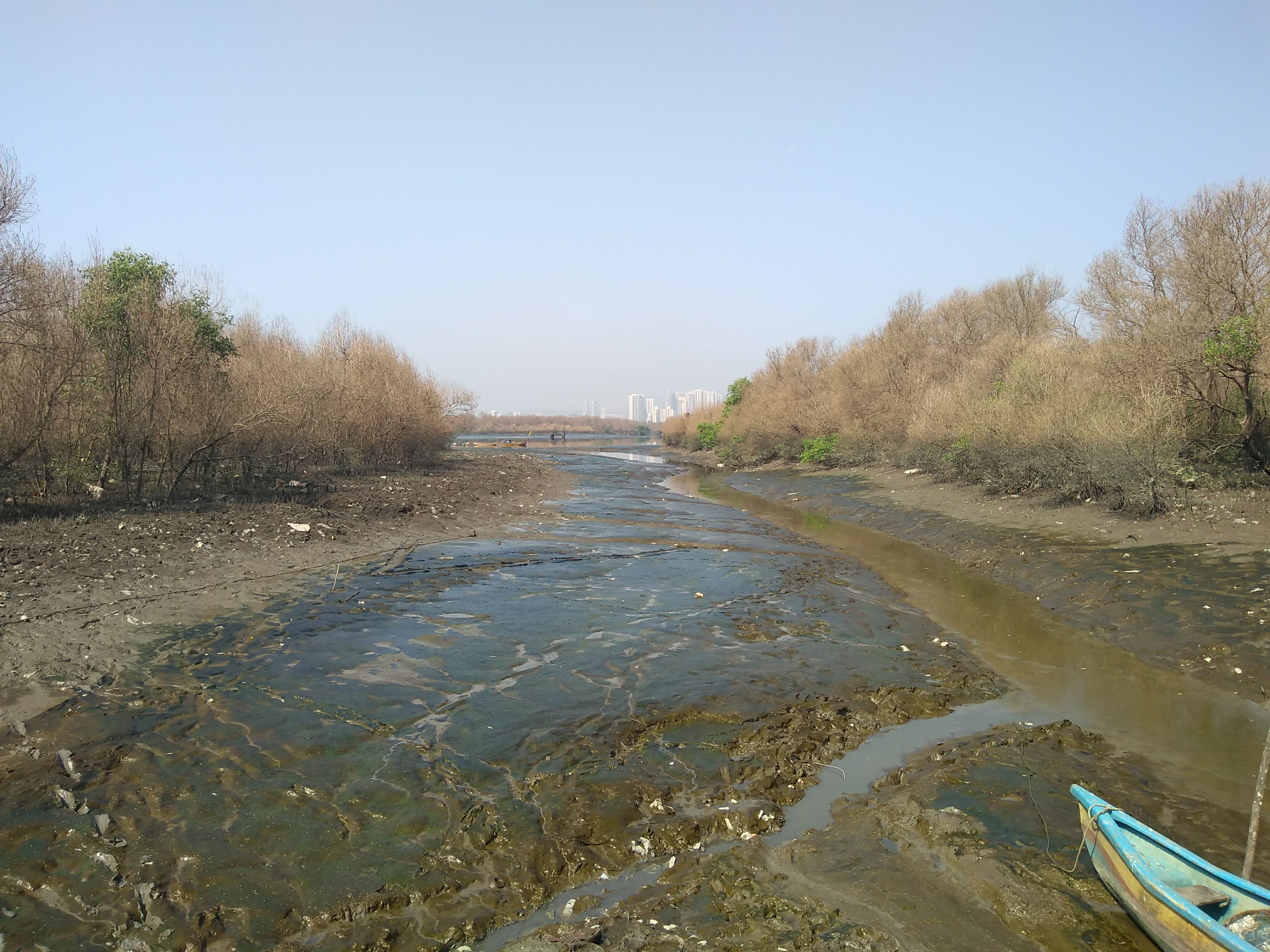
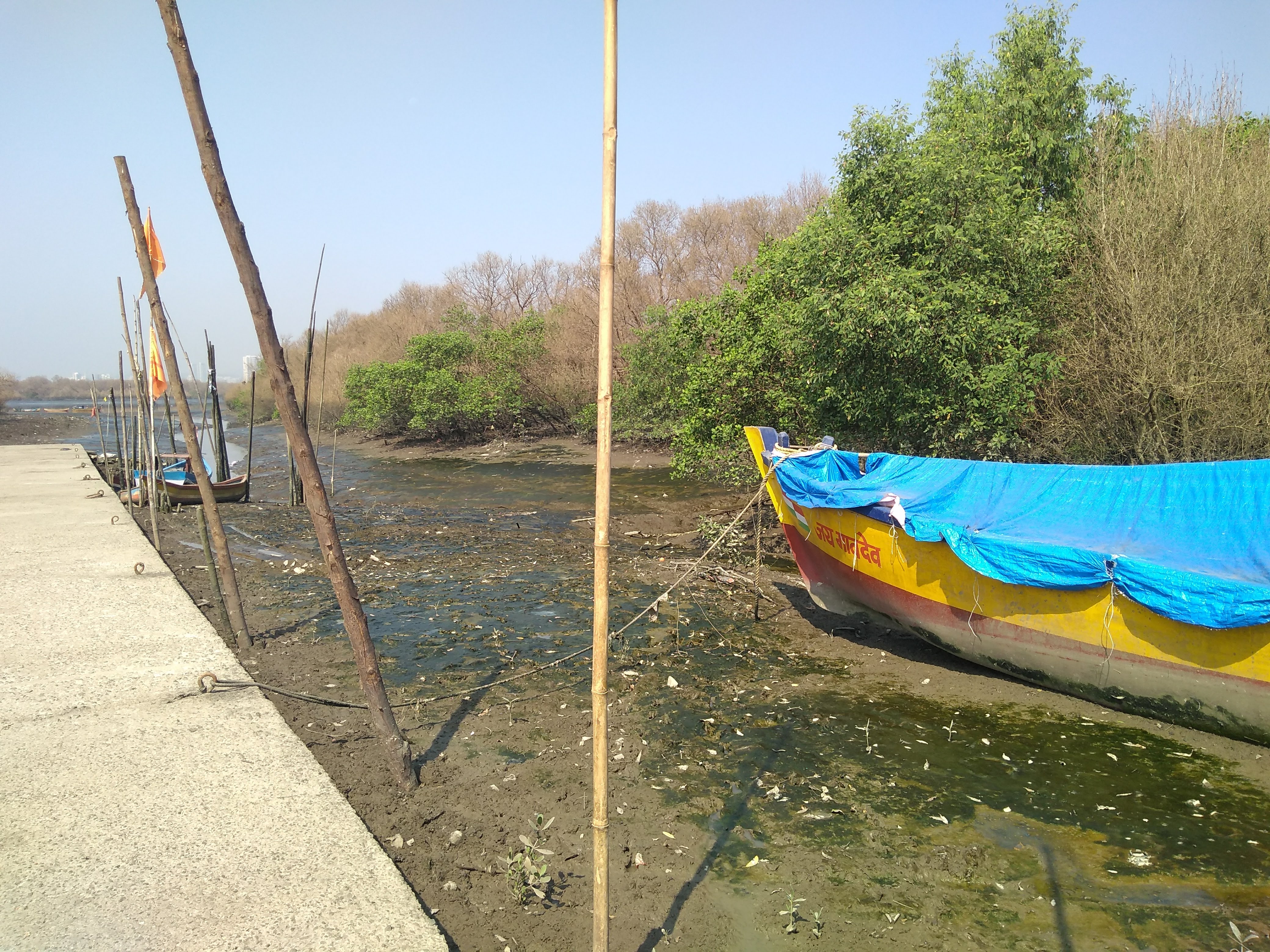
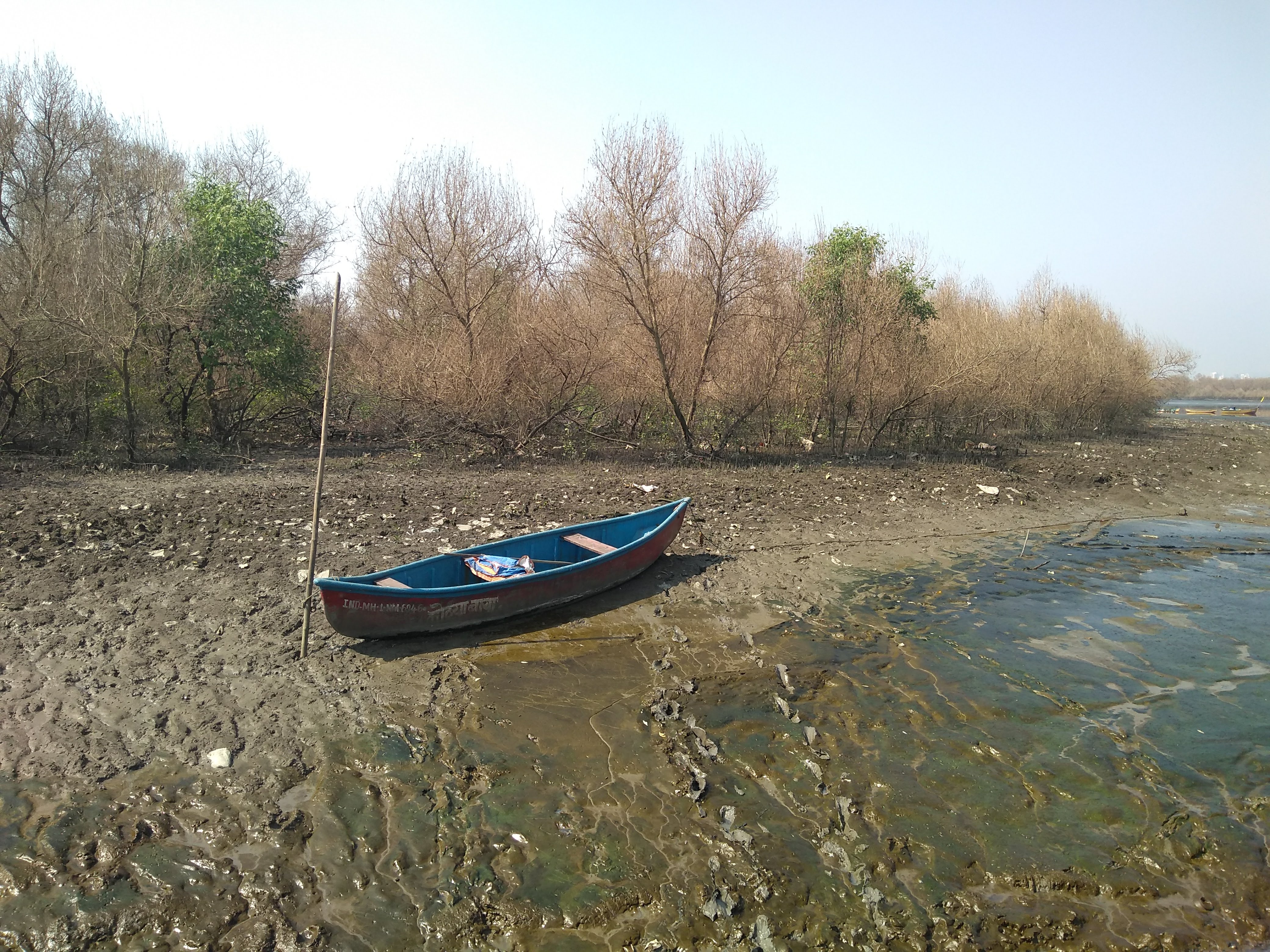
According to the Thane Creek Flamingo Sanctuary Management Plan 2020 report, there are two sewage treatment plants (STPs) on either side of the sanctuary. Stalin said that only the Bhandup STP works at half its capacity. He condemned the “insensitive” state and city administrations for failing to improve the creek conditions. Further, he worried about the amendment proposal for the Forest (Conservation) Act, 1980 (FCA) that diluted the requirement for environmental clearance. “The amendments will make it easier to divert forests,” he said.
Earlier, the FCA stated that the Principal Chief Conservator of the concerned forest area will grant permission for tree felling or similar projects on the recommendation of the Divisional Forest Officer (in the absence of a competent authority). If the proposed amendments are accepted, reserved forest land may be given to private organisations without requiring environmental clearance.
Fish deaths a recurring horror
While the mass fish deaths this month disconcerted fishers, baseline studies in 2016 said that it is not a new occurrence for Thane Creek. Survey personnel found mass fish deaths of the same grey mullet fish and, like Stalin, blamed the effluents from the industrial belt situated on the East bank. The Thane-Belapur area is known as one of Asia’s largest industrialised zones. The waste released by such an urban region far exceeds the assimilating capacity of the creek, said the report. As the problem remains neglected, the negative impact continues to worsen at a larger scale.
Left with no other choice, Airoli fisherfolk wait for Ekadashi when the high tide will bring in fresh water and sustenance. On October 27 they held final rites for the dead fish to make a final appeal to Gods.
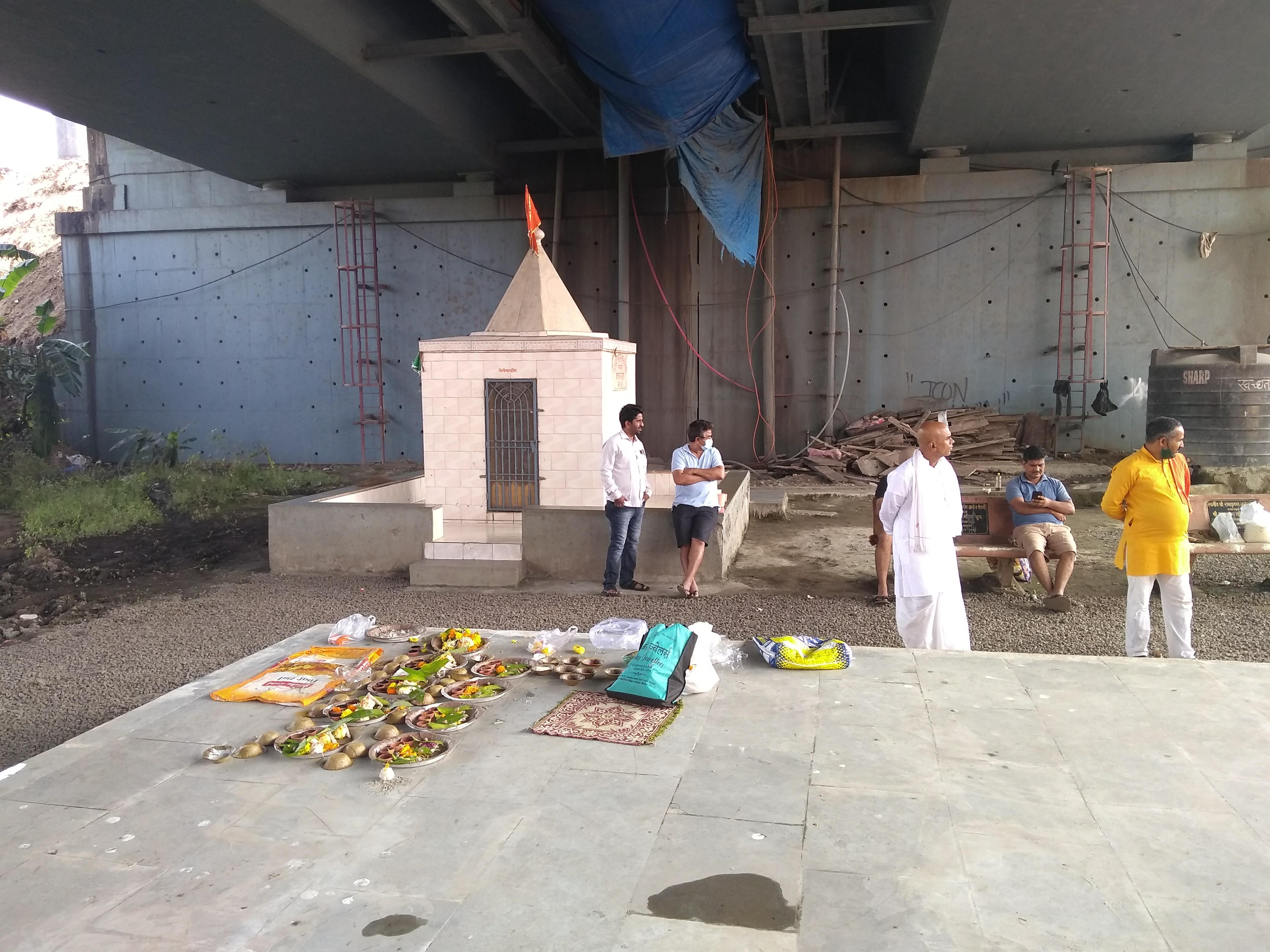
Related:
Forest Conservation Act: GoI suggests fundamental changes Act, despite widespread objections
Mumbai’s Koli folk decry coastal road project
Maharashtra’s fishing community fights to protect its ‘golden belt’ coast